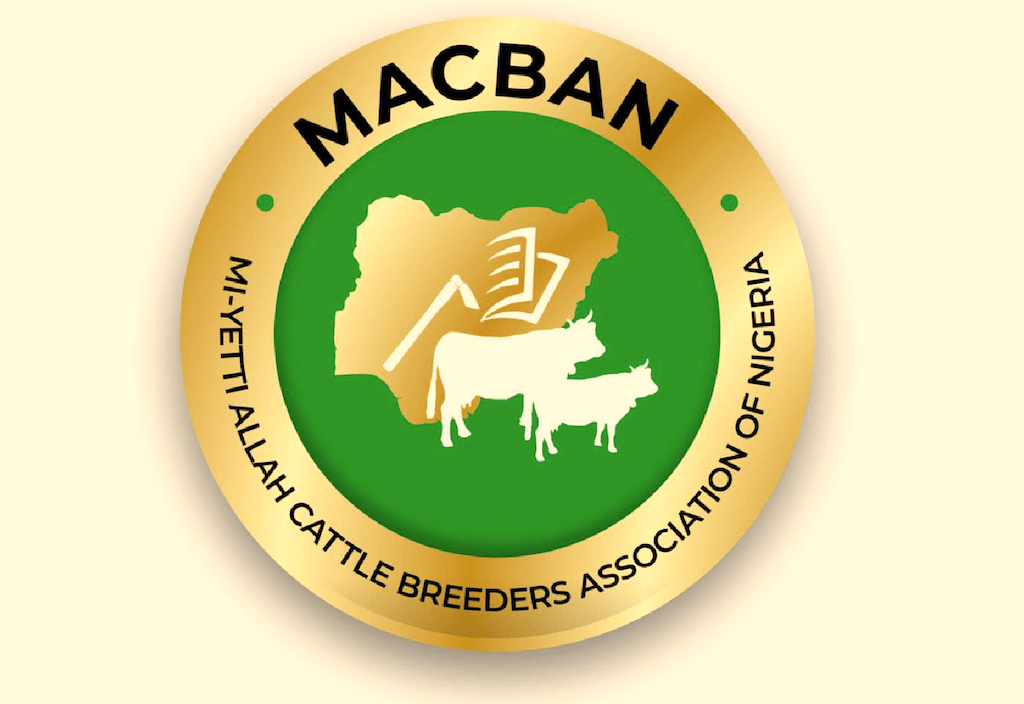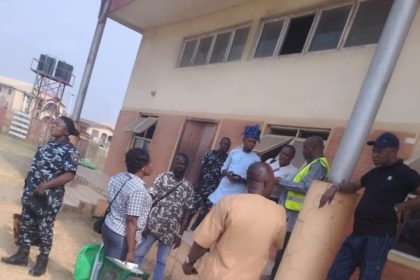By Adigun Sunday
Over the weekend, Oyo town in Oyo State came alive in a way it hadn’t for years. Lamba Hotel, the venue of the Miyetti Allah Cattle Breeders Association of Nigeria (MACBAN) Oyo State chapter’s inauguration of new executives, was alive with music, cultural displays, and smiles. But beneath the festivities, a story of resilience, reconciliation, and hope for the future quietly unfolded.
For decades, herders and farmers in the Southwest have been locked in tensions over land, grazing routes, and resources. These disputes have sometimes escalated into violence, leaving scars on communities and threatening livelihoods. However, as MACBAN’s leadership baton was handed over to a new generation, many stakeholders believe this transition could mark the beginning of a more peaceful and collaborative era.
Alhaji Ibrahim Musa, a 52-year-old herder who attended the event, shared his cautious optimism. “There was a time when herders like us could barely move freely. Farmers didn’t trust us, and we didn’t understand their frustrations,” he recounted. “But with this association working to resolve conflicts, things have changed. I came here to witness new leaders who will continue this good work.”
The ceremony brought together dignitaries, community leaders, and representatives of farmers, all of whom underscored the need for peace. The National President of MACBAN, Alhaji Baba Usman Gazarma, spoke with urgency about the significance of the association’s role in Nigeria’s economy. “Cattle rearing is vital not only to herders but to the country,” Gazarma stated. “Without peace, there can be no development. These new executives must continue to prioritize dialogue and collaboration to ensure growth.”
Among the attendees was Fatima Kabiru, a 28-year-old herder’s daughter and dairy trader from Ibadan. Her life, like many others, depends on a harmonious relationship between herders and farmers. “When there’s conflict, I can’t sell milk in markets because people are afraid of us,” she said softly. “Today, I saw leaders from different regions coming together. I hope this change means less fear and more opportunities for people like me.”
The Seriki Fulani of Lagos and Chairman of the Council of Fulani Chiefs Southwest Zone, Alhaji Mohammed Banbado, emphasized the importance of the leadership’s youthful direction. “We deliberately elected younger executives this time,” he explained. “They understand the realities of modern-day challenges. From technology to better communication with farming communities, these leaders can bridge the gap between us and the farmers.”
For farmers, who have often borne the brunt of disputes, the event provided a glimmer of hope. Prince Olusegun Dasaolu, President of the Southwest Commodities Farmers Organization, described the day as a landmark moment for fostering understanding. “Conflict serves no one. If herders and farmers work together, we can create solutions that benefit both sides,” he said. “The new MACBAN leadership has a responsibility to deepen dialogue, resolve issues, and build trust that will last for years.”
Alhaji Mohammed Kabir Laba, the Seriki Fulani of Abeokuta and MACBAN Southwest Zone Chairman, expressed his pride and joy at the smooth handover of leadership. “This is a rebirth of our association. We’ve seen too much misunderstanding in the past. Today, we celebrate unity, and we charge our new executives to serve as beacons of peace,” Laba remarked.
The event’s atmosphere was far removed from the tension that once gripped communities in the Southwest. Traditional songs and music played as herders and farmers mingled, exchanging pleasantries. It was a symbolic moment—one that underscored the possibility of mutual respect and understanding.
For communities like Oyo town, where agriculture and cattle rearing are cornerstones of the economy, peace is not just a necessity but a lifeline. This sentiment was reflected in the speeches delivered, the handshakes shared, and the smiles exchanged.
As the ceremony drew to a close, stakeholders charged the newly inaugurated executives with a critical mandate: to prioritize peace, implement initiatives that foster coexistence, and lead with integrity. The task ahead is no small one, but for many, the occasion marked a step in the right direction.
Alhaji Ibrahim Musa, who watched the event with quiet hope, summed it up. “This day feels different. If these leaders truly work for peace, maybe we won’t just talk about problems anymore—we will talk about solutions.”
In a region once marred by strife, the Miyetti Allah Cattle Breeders Association’s new leadership offers a chance to rewrite the narrative. With a renewed focus on cooperation, dialogue, and progress, the future may hold brighter days for herders, farmers, and communities across the Southwest.




